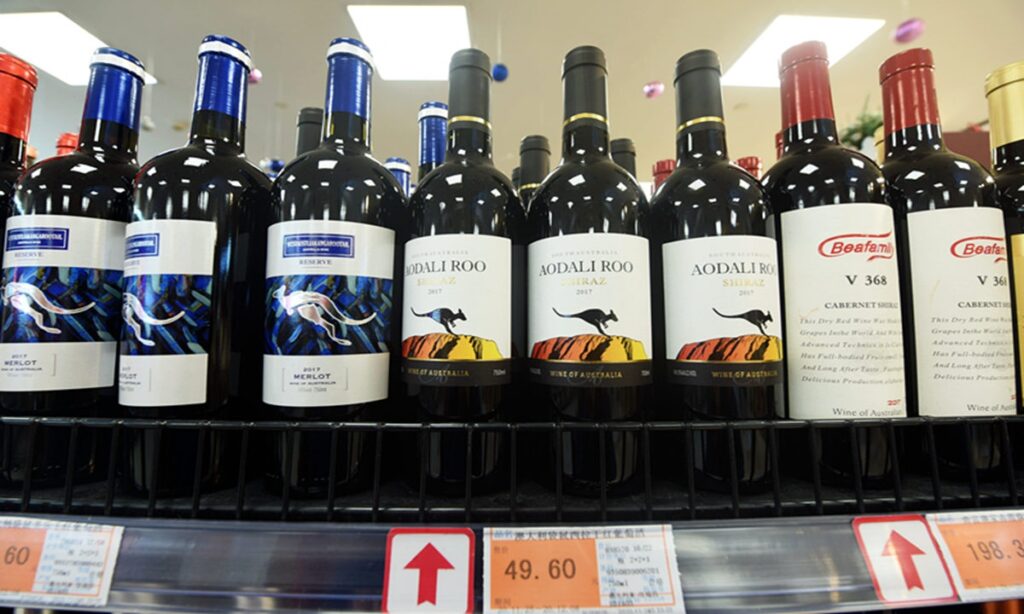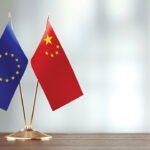Australia should not act in an arbitrary manner but should handle the wine dispute with China with respect, and in a thoughtful and flexible manner, which is more conducive to problem-solving, Chinese experts said on Sunday, responding to an Australian minister’s fresh remarks in pushing China to remove wine-related tariffs while ignoring China’s proposal to link wine with other trade issues, as media reported.
He Yadong, a spokesperson of China’s Ministry of Commerce (MOFCOM), said on Thursday that China and Australia will continue to work together actively to seek a prompt resolution of disputes, the Xinhua News Agency reported on Friday.
The disputes include China’s anti-dumping and countervailing duty measures on wine imported from Australia and Australia’s anti-dumping and countervailing duty measures on certain products from China, He told a regular press conference.
“We are ready to work with the Australian side to enhance mutual trust and cooperation based on settling the barley dispute,” said the spokesperson.
However, in the latest response from the Australian side regarding the wine case, the country’s Agriculture Minister Murray Watt said on Sunday, “We see them as entirely separate matters.” The government wants the wine dispute “resolved in the same way the barley dispute was resolved – through dialogue”, he told the Australian Broadcasting Corp.
Indicating that the dispute is still ongoing at the World Trade Organization (WTO), Watt added that “We will continue our WTO case when it comes to wine and we will continue to defend the case when it comes to steel,” Watt said, as media reported.
Chinese experts said that while there is a need from the Australian side to remove the measures targeting Australian wine, things must be conducted in a reasonable and cooperative manner.
The anti-dumping and anti-subsidy measures imposed on Australian imported wine were determined by China after a serious and lengthy investigation, based on the prevailing circumstances at that time, noting that “there were indeed issues with the relevant Australian products, and China’s actions were justified,” Chen Hong, director of the Australian Studies Center at East China Normal University, told the Global Times on Sunday.
In 2020, the MOFCOM started an anti-dumping investigation into wine products from Australia following a request from a Chinese industry association. As a result of the probe, in November 2020, importers of Australian wine were required to pay deposits ranging from 107.1 percent to 212.1 percent. The MOFCOM stated that the decisions were made in line with Chinese laws and WTO rules.
Amid a thaw in bilateral trade relations, particularly with the resolution of the barley dispute, the Australian side is expecting a similar recovery to take place regarding wine trade.
Unlike barley, wine is neither a necessity nor irreplaceable. In terms of cost-effectiveness, Australian red wine lacks advantages, an industry insider told the Global Times in a previous interview, noting that “the urgency to remove tariffs is not high.”
When reached by the Global Times on Sunday, the industry insider said that there has been no change in the situation regarding the wine case.
While Australia’s economy itself is in need of a recovery, the wine industry has been severely affected and swiftly resolving this issue would undoubtedly bring significant practical benefits to its wineries and exporters. “We hope that Australia doesn’t act in an arbitrary manner but handles this situation with respect, and in a thoughtful and flexible manner, which is more conducive to problem-solving,” Chen said.
If Australia continues to “stubbornly” focus solely on the wine dispute, it will appear to be acting in its own interests without considering the other side’s interests, despite the fact that China and Australia are trading partners, Chen said.
In responding to the joint efforts to resolve the dispute, the MOFCOM spokesperson said on Thursday that the two countries shall fully accommodate each other’s concerns and promote a packaged solution for the wine case and the anti-dumping and countervailing measures imposed by Australia on imports of wind towers, railway wheels and stainless steel sinks from China.
China and Australia, which are both members of the WTO, share the responsibility of safeguarding the rules-based multilateral trading system, He said, adding that China is also open to resolving the above issues through multilateral channels.
(Global Times)




